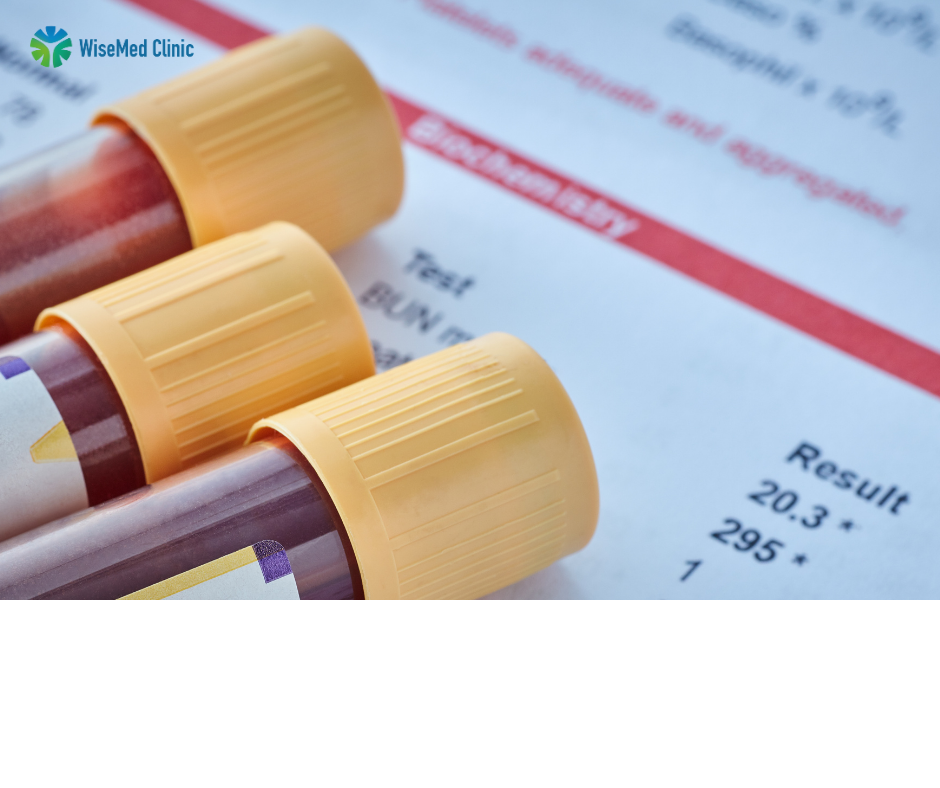The EDIM (Epitope Detection in Monocytes) cancer screening test represents a breakthrough in early cancer detection technology. This innovative blood test identifies cancer-related changes in immune cells, offering a powerful tool for early detection, monitoring, and treatment guidance.
What is EDIM Testing?
EDIM is an advanced immunological test that detects specific epitopes (protein fragments) on monocytes in the blood. These epitopes appear when the immune system recognizes and responds to cancer cells, making EDIM a sensitive indicator of malignant processes even before tumors become detectable by conventional methods.
How EDIM Works
The test analyzes:
- Monocyte Activation: Detection of immune cell changes in response to cancer
- Epitope Recognition: Identification of cancer-specific protein markers
- Immune Response Patterns: Analysis of immune system activation against malignancies
- Tumor Burden Assessment: Evaluation of cancer cell presence and activity
- Treatment Response: Monitoring of therapy effectiveness
Primary Applications
First-Line Screening Applications:
- Early Cancer Detection: Identification of malignancies before symptoms appear
- Tumor Monitoring: Ongoing surveillance of known cancers
- Treatment Response: Assessment of therapy effectiveness
- Recurrence Surveillance: Detection of cancer return after treatment
- High-Risk Screening: Enhanced monitoring for at-risk individuals
Second-Line Applications:
- Chronic Inflammation: Investigation of persistent inflammatory conditions
- Autoimmune Conditions: Assessment of immune system dysregulation
- Unexplained Symptoms: Evaluation of concerning but unclear symptoms
- Family Cancer History: Enhanced screening for hereditary cancer risk
- Environmental Exposure: Monitoring after carcinogen exposure
Advanced Applications:
- Preventive Oncology: Proactive cancer prevention strategies
- Immunotherapy Guidance: Selection and monitoring of immune treatments
- Personalized Treatment: Individualized cancer care protocols
- Research Protocols: Participation in advanced cancer research
- Liquid Biopsy Alternatives: Non-invasive cancer detection methods
Test Pricing
Premium EDIM Test
- Price: 16,000 THB
- Sample Required: Simple blood draw
- Results Timeline: 7-10 business days
- Best for: Comprehensive cancer screening and monitoring
Benefits of EDIM Testing
Early Detection Advantages:
- Pre-Symptomatic Detection: Identification before clinical symptoms
- High Sensitivity: Detection of small tumor burdens
- Multi-Cancer Screening: Potential detection of various cancer types
- Non-Invasive: Simple blood test without radiation exposure
- Complementary: Enhances traditional screening methods
Monitoring Applications:
- Treatment Response: Real-time assessment of therapy effectiveness
- Recurrence Detection: Early identification of cancer return
- Tumor Burden: Quantitative assessment of cancer cell activity
- Prognosis Information: Additional prognostic indicators
- Treatment Planning: Guidance for therapeutic decisions
What to Expect
Pre-Test Preparation:
- No Special Preparation: No fasting or medication restrictions required
- Medical History: Review of cancer risk factors and symptoms
- Consent Process: Discussion of test benefits and limitations
- Baseline Assessment: Initial health evaluation if needed
During the Test:
- Blood Collection: Standard venipuncture (similar to routine blood tests)
- Quick Process: Approximately 5-10 minutes
- Minimal Discomfort: Standard blood draw procedure
- Sample Processing: Immediate laboratory processing
Results and Interpretation:
- Comprehensive Report: Detailed analysis of findings
- Expert Interpretation: Professional medical review of results
- Risk Assessment: Evaluation of cancer probability
- Recommendations: Follow-up testing or monitoring suggestions
- Integration: Correlation with other health assessments
Understanding EDIM Results
Result Categories:
- Negative/Low Risk: Minimal evidence of cancer-related immune activation
- Indeterminate: Unclear results requiring additional evaluation
- Positive/High Risk: Significant evidence suggesting possible malignancy
- Monitoring Values: Quantitative measures for ongoing surveillance
Follow-Up Protocols:
- Negative Results: Routine screening continuation
- Positive Results: Additional diagnostic evaluation recommended
- Indeterminate Results: Repeat testing or alternative assessments
- High-Risk Results: Immediate comprehensive cancer evaluation
Who Should Consider EDIM Testing?
Ideal Candidates:
- Individuals with strong family history of cancer
- Those with known cancer risk factors
- Patients with unexplained symptoms concerning for malignancy
- Cancer survivors requiring surveillance monitoring
- High-risk individuals seeking enhanced screening
Special Populations:
- Cancer Survivors: Monitoring for recurrence
- High-Risk Genetics: Enhanced screening for hereditary cancers
- Environmental Exposure: Monitoring after carcinogen exposure
- Chronic Inflammation: Investigation of persistent immune activation
- Research Participants: Advanced cancer screening protocols
Limitations and Considerations
Test Limitations:
- Not Definitive: Requires confirmation with additional testing
- False Positives: Possible in inflammatory or autoimmune conditions
- Organ Specificity: May not identify specific cancer location
- Emerging Technology: Continuing research and validation
Important Notes:
- EDIM is a screening tool, not a diagnostic test
- Positive results require follow-up with oncology specialists
- Results should be interpreted within clinical context
- Regular screening recommendations still apply
Integration with Comprehensive Care
EDIM testing complements:
- Traditional Screening: Mammograms, colonoscopies, CT scans
- Tumor Markers: CEA, PSA, CA 19-9, and other cancer markers
- Genetic Testing: Hereditary cancer risk assessment
- Imaging Studies: MRI, CT, PET scans for further evaluation
- Specialist Consultation: Oncology and hematology referrals
Research and Development
EDIM technology continues evolving with:
- Clinical Validation: Ongoing studies proving effectiveness
- Cancer Type Specificity: Research into specific malignancy detection
- Treatment Monitoring: Enhanced therapy response assessment
- Prognostic Value: Prediction of cancer outcomes
- Combination Testing: Integration with other biomarkers
Why Choose WiseMed for EDIM Testing?
- Advanced Technology: Access to cutting-edge cancer screening
- Expert Interpretation: Experienced oncology consultation
- Comprehensive Care: Integration with complete cancer screening programs
- Follow-Up Support: Ongoing monitoring and guidance
- Research Access: Participation in advanced cancer detection studies
Schedule Your EDIM Cancer Screening
Ready to access advanced cancer screening technology for early detection and peace of mind? Contact WiseMed today to schedule your EDIM test and learn how this innovative screening can enhance your cancer prevention strategy.
EDIM testing is available as part of comprehensive cancer screening programs. All results require professional medical interpretation and may necessitate additional evaluation.
